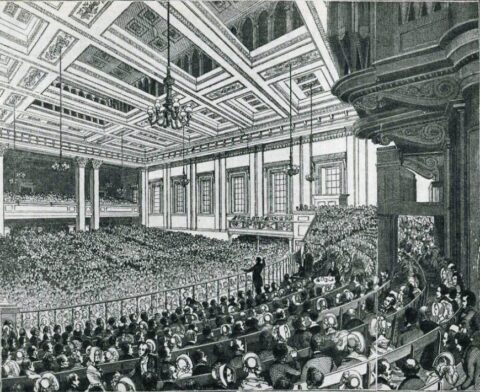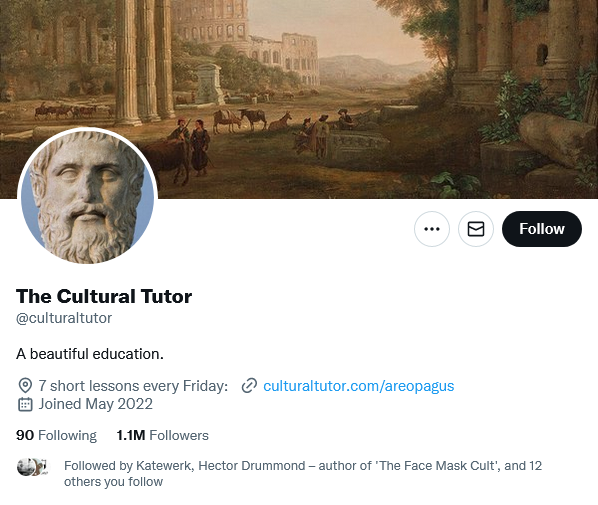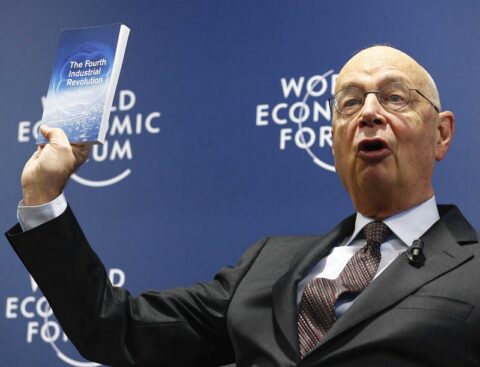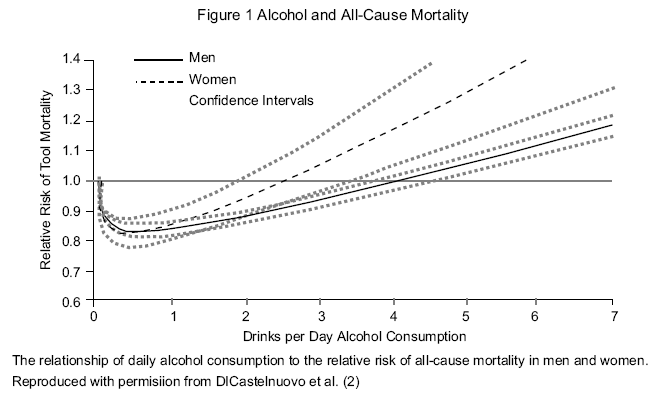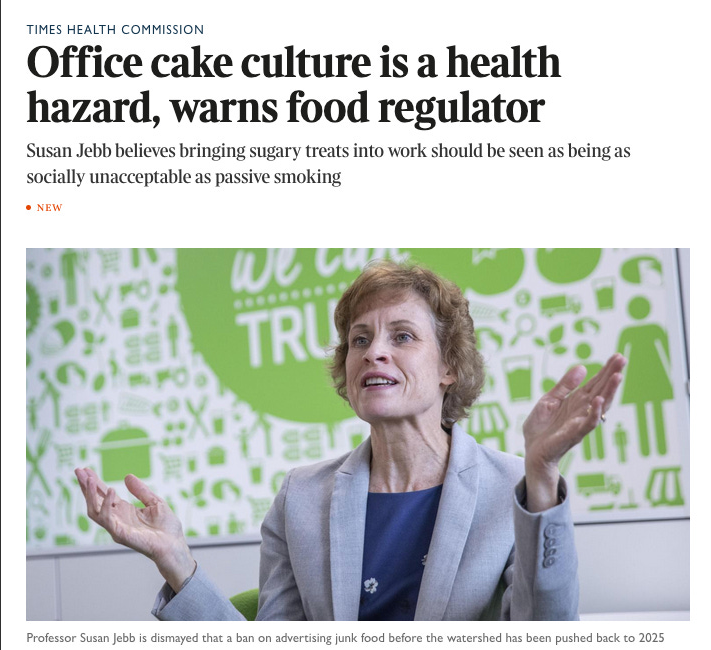The Hundred Years’ War laid the foundations for the modern state. Exaggerating only a little for effect, when “England” and “France” went to war over some convoluted feudal nonsense in 1337, nobody not directly in the armies’ path cared. By 1453, though, both sides had to clearly articulate just why they were fighting in order to keep the war going. “National chauvinism” turned out to be a pretty good answer for the French — who, after all, were on the receiving end of most of the physical damage — but it worked ok for England, too. Early Modern English history makes a lot more sense when you know about the Pale of Calais.
It took the rest of Europe another 150 years, but the Thirty Years’ War did the trick. What started as another of the endless doctrinal conflicts kicked off by the Reformation ended with the creation of the modern nation-state. Cardinal Richelieu really was a Cardinal — a prince of the Roman Catholic Church, a guy with a legitimate chance of being elected Pope. This man brought Catholic France into the war on the Protestant side for “reasons of state”. This made sense in 1631 … and the war still had another 17 years to run.
Speaking of, the treaty that ended the Thirty Years’ War, the famous Peace of Westphalia, is credited with creating the modern nation-state. Which it did, but since we decided back in 1946 that nationalism was the worst possible sin, we Postmoderns forgot what everyone around the treaty table knew: That “nation” and “state” are inseparable. The nation-state, which for clarity’s sake will henceforth be known as the ethno-state, is the biggest stable form of human organization.
Severian, “The Libertarian Moment?”, Rotten Chestnuts, 2020-03-19.
January 22, 2023
QotD: Evolution of the nation-state
January 21, 2023
When did England become that sneered-at “nation of shopkeepers”?
In the latest Age of Invention newsletter, Anton Howes considers when the English stopped being a “normal” European nation and embraced industry and commerce instead of aristocratic privilege:
England in the late eighteenth century was often complimented or disparaged as a “nation of shopkeepers” — a sign of its thriving industry and commerce, and the influence of those interests on its politics.
But when did England start seeing itself as a primarily commercial nation? When did the interests of its merchants and manufacturers begin to hold sway against the interests of its landed aristocracy? The early nineteenth century certainly saw major battles between these competing camps. When European trade resumed in 1815 after the Napoleonic Wars, an influx of cheap grain threatened the interests of the farmers and the landowners to whom they paid rent. Britain’s parliament responded by severely restricting grain imports, propping up the price of grain in order to keep rents high. These restrictions came to be known as the Corn Laws (grain was then generally referred to as “corn”, nothing to do with maize). The Corn Laws were to become one of the most important dividing lines in British politics for decades, as the opposing interests of the cities — workers and their employers alike, united under the banner of Free Trade — first won greater political representation in the 1830s and then repeal of the Corn Laws in the 1840s.
The Corn Laws are infamous, but I’ve increasingly come to see their introduction as merely the landed gentry’s last gasp — them taking advantage of a brief window, after over two centuries of the declining economic importance of English agriculture, when their political influence was disproportionately large. In fact, I’ve noticed quite a few signs of the rising influence of urban, commercial interests as early as the early seventeenth century. And strangely enough, this week I noticed that in 1621 the English parliament debated a bill that was almost identical to the 1815 Corn Laws — a bill designed to ban the importation of foreign grain below certain prices.
But in this case, it failed. In the 1620s it seems that the interests of the cities — of commerce and manufacturing — had already become powerful enough to stop it.
The bill appeared in the context of a major economic crisis that, for want of a better term, ought to be called the Silver Crisis of 1619-23. Because of the outbreak of the Thirty Years War, the various mints of the states, cities, and princelings of Germany began to outbid one another for silver, debasing their silver currencies in the process. The knock-on effect was to draw the silver coinage — the lifeblood of all trade — out of England, and at a time when the country was already unusually vulnerable to a silver outflow. (For fuller details of the Silver Crisis and why England was so vulnerable to it, I’ve written up how it all worked here.)
The sudden lack of silver currency was a major problem, and all the more confusing because it coincided with a spate of especially bountiful harvests. As one politician put it, “the farmer is not able to pay his rent, not for want of cattle or corn but money”. A good harvest might seem a time for farmers and their landlords to rejoice, but it could also lead to a dramatic drop in the price of grain. Good harvests tended to cause deflation (which the Silver Crisis may have made much worse than usual by disrupting the foreign market for English grain exports). An influential court gossip noted in a letter of November of 1620 that “corn and cattle were never at so low a rate since I can remember … and yet can they get no riddance at that price”. Just a few months later, in February 1621, the already unbelievable prices he quoted had dropped even further.
Despite food being unusually cheap, however, the cities and towns that ought to have benefitted were also struggling. The Silver Crisis, along with the general disruption of trade thanks to the Thirty Years War, had reduced the demand for English cloth exports. And this, in turn, threatened to worsen the general shortage of silver coin — having a trade surplus, from the value of exports exceeding imports, was one of the only known ways to boost the amount of silver coming into the country. England had no major silver mines of its own.
It’s in this context that some MPs proposed a ban on any grain imports below a certain price. They argued that not only were low prices and low rents harming their farming and landowning constituents, but that importing foreign grain was undermining the country’s balance of trade. They argued that it was one of the many causes of silver being drawn abroad and worsening the crisis.
When the SS Go Too Far – War Against Humanity 096
World War Two
Published 20 Jan 2023The internal conflict between Poland and the other United Nations Allies deepens as Churchill faces them with diplomatic defeat over Soviet land grab. In the Occupied Netherlands and Poland the Nazis continue their atrocities.
(more…)
A club for autodidacts?
Ed West regrets the lacunae in his knowledge of many things, which I suspect also describes a lot of my blog visitors (given how often my own autodidactic web explorations end up here or on my social media accounts). His proposed solution is a club to study the western canon:
I’m ashamed of how little I know about a lot of things. Classical music, for instance, is a huge ocean of unknowns to me. I appreciate it, and I would like to know more, but it still feels like a language in which I have only the barest of vocabulary.
I’m so clueless and lightweight on that front that my favourite classical music LP when I still had a record player was a double album which told you which advert each piece was from (“The Hovis advert with the boy walking up the hill” for Dvorak, “the Hamlet cigar ad with Gregor Fisher” by Bach).
My knowledge of poetry is quite poor, too, and I wish I could recite more of it, rather than, say, the lyrics of the first seven Iron Maiden albums I learned off by heart at 13 (nothing against Iron Maiden, I still love them, but I’ve found this a slightly less useful skill down the years when trying to impress people).
Poetry has never been my thing. I enjoy hearing others read poetry, but there’s always something that prevents me from reading poetry on the printed page and “getting” the rhythm of it for more than a stanza or so. However, with song lyrics the underlying music provides sufficient support that I undoubtedly know far more lyrics by heart than any other kind of poet-created text.
YouTube is full of videos following in George Birkbeck’s tradition of adult learning. There are podcasts like Peter Adamson’s History of Philosophy Without Any Gaps or The Partially Examined Life. One of the most popular Twitter accounts at the moment is The Cultural Tutor, with over a million followers, producing threads on the art, architecture, music and literature you should know about. People really want to learn this stuff, and regret that they were never made to do so earlier.
Some of this is due to the education system, although I don’t want to be one of those tedious people who go on Twitter and blame the curriculum for the gaps in their knowledge of history: “why weren’t we taught about the Second Schleswig war in school? Why am I only learning this now?” as if their teachers had thousands of hours spare rather than a very limited amount of time. But it’s also true that most people leave the British state education system knowing very little about the western canon, and are afterwards playing catch-up with a less absorbent mind.
In my case, with a couple of exceptions, the way that history — especially Canadian history — was taught in school seemed to be deliberately made as bland and uninteresting as possible … we of course skipped over most of the battles and campaigns so we could concentrate on the diplomats and treaties. Steve Sailer noted a similar phenomenon in US schools:
In Europe, anthropologists have promoted the “pots not people” theory to argue that trade and changes in fashion must explain why Corded Ware pots suddenly showed up all over Europe about 4,900 years ago. (So did battle axes; indeed, early scientists called this the Battle Axe Culture. But that sounded too awesome. Hence, more recent academics renamed it after its pottery style to make these brutal barbarians sound dweebier and thus less interesting to boys.)
Oddly, we were at least given some minimal insight into the plight of First Nations children in the residential school system which was not true when my son went to school a generation later. I’m still puzzled about that change in the curriculum. But back to Ed’s proposal:
Perhaps the main reason is that there already aren’t enough people who know about these things to teach in the first place, and who are also willing to endure the strain of having to keep order among an unwilling audience. So the knowledge does not get passed on, and public culture becomes ever more lowbrow.
But while it’s a hopeful sign that so many people go online to learn these things, my take-away from lockdown is that in-person is always better — going to something live, meeting people face to face, allowing your sensory perception to aid the learning process. I also believe that the more clubs and institutions we have, the healthier and happier our society.
That is why I’m proposing an idea, for a sort of club where people come and listen to talks about a particular feature of the western canon — Virgil, Goethe, Milton, Van Eyck, whatever — and fill in all these enormous holes in our knowledge. It would be a bit like an old-fashioned salon, or a Lyceum club. Although there are local salons still running, this would ideally be national. This canon club — I’m open to suggestions for a different name — would initially start in one city, presumably London, but if there was further interest we could help set up branches across Britain (and then even maybe abroad). Each local club would run semi-independently, but the wider organisation would help with arranging speakers and so on.
I see his point, but in my experience a lot of autodidacts are also rather introverted by nature so a physical salon or club with a lot of strangers might be less appealing than some of the existing online options.
Ask Ian: Liberators or Cobray Terminators for the Elbonian Resistance?
Forgotten Weapons
Published 29 Sept 2022From Jon on Patreon:
“Elbonia has been occupied by an enemy force. Do you sabotage their resistance by airdropping them Liberator pistols or Cobray Terminators?”To my mind, the Liberator is a substantially more useful resistance weapons, so I would supply Elbonia with lots of crates of Cobray Terminators. Why?
First, the Liberator is concealable. Historically, lots of resistance action requires hiding a small weapons. It’s not all forest encampments and ambushes.
Second, the Liberator is more effective. It uses a .45ACP pistol cartridge. The smooth barrel and atrocious sights certainly limit its utility, but if you actually hit someone with it, it will do the job. Most of the shotgun ammunition available to a resistance organization will be the most common sort of sporting ammunition, which is birdshot. Birdshot is very ineffective against people at anything but absolutely point-blank range.
Third, it is much simpler to fabricate a single-shot shotgun than a compact pistol. The Elbonian Resistance wouldn’t have much trouble making something like a Richardson Guerrilla Gun, so supplying them with Terminators doesn’t actually give them much that they couldn’t get already.
(more…)
QotD: Farmers’ markets are a scam
The first thing I saw was a number of individuals taking photographs of purple carrots and multi-coloured tomatoes to doubtless upload them to Instagram. Customers were shoved out of the way so they could achieve the perfect shot. I can imagine the description that would be added to the images: “At my local market. Buying all organic produce to juice and buying a load of Guatemalan coffee beans to support local farmers. #FoodIsMood”
Carefully navigating the Bugaboos, words leapt out at me from the stalls: “gluten free”, “vegan”, “no added sugar”, “no saturated fats”. It was more like advice from a doctor than things to eat. At the cheese stall I admit I was tempted by the chilli jam accompaniment, as it was described as “rich, tangy tomato with purple shallots and plump sultanas”, but all I needed to do was look at the price — a startling £10 for the small jar with a handwritten label — to decide that the Branston pickle sitting in my store cupboard would do just fine.
An older woman standing by the cheese stall looks as if she is about to pass out. It’s not the heat; rather she has just been informed by the vendor, a young woman with green hair and several face piercings, the price for a piece of Brie and a couple of small goat cheeses. And to add insult to injury, when the customer hands over the £20 to pay she is told, “We only take cards.”
So much for a local, friendly community space. The truth is, these markets are a rip-off, aimed at posturing fools with more money than sense, and food snobs that believe if food isn’t prohibitively expensive for the masses, it’s not good enough to take home and store in their gigantic Smeg fridge.
Julie Bindel, “Mugged by a mud-caked spud”, The Critic, 2022-10-15.
January 20, 2023
“… any association with Davos should put an individual or organization under notice of suspicion”
CDR Salamander wants to sign up — like so many of us — for a post-Davos world:
The whole World Economic Forum/Davos experience is one part Bond villain parody, one part clout seeking billionaires, one part megalomania, a heaping cup of greed, and a dash of rent seeking.
In 2023 things have reached the point where any association with Davos should put an individual or organization under notice of suspicion. Amazing to see people who claim to be American conservatives or lovers of liberty attending in an non-ironic, non-protesting capacity.
This wannabee gaggle of quasi-oligarchs and autocrat throne sniffers represents everything that is wrong with the human desire for control, power, and to crush the individual for fun and profit.
They pretend to be the world government in waiting that no one asked for, no one wants, and trust me on this — no one wants to live under. Being unaccountable to the people is their ideal state.
If you don’t know what I am referring to above, shame on you. Google it yourself, but I couldn’t help but giggle when I read the title from this article by Gideon Rachman at The Financial Times; Geopolitics threatens to destroy the world Davos made.
Really? It is? Then by all means let’s have MOAR!
…the 2023 WEF — the first to take place in its regular winter location since the pandemic began — could be seen as signalling a return to normalcy. However, China’s sudden abandonment of its zero-Covid policy has raised fears that a new wave of variants could emerge.
And, even if a fresh pandemic phase is avoided, Covid has left its mark on the way governments and businesses think about globalisation. The assumption that goods and commodities can always be shipped easily around the world has been shattered.
Except for the mentally fragile few and those who leverage power through them, the world is over COVID like it is over the flu. The last three years has been a clarifying event bringing in to stark relief those autocracy worshipers and hypocrites who hold individual rights in contempt. It also helped us see the existential danger a free people can face when they put themselves at the mercy of governments who see a crisis opening a door for an easy grasp at additional powers they will never want to give back.
The past the Davos set desired failed the future that is our present, but that doesn’t give pause to any of them. The Davos view of the future where everyone (except for those at the top) lives in a pod, eats bugs, owns nothing but is “happy” is at best dystopian, at worst justifies at some point if they are not stopped, open global revolt against the ruling class with all the violence and blood that comes with it.
[…]
Simply unacceptable in democratic nations that the will of the people might promote change in political leadership. Next thing you know, they might want even more free speech and redress of grievances.
Those world leaders who are present might do well to take the funicular up to the Schatzalp Hotel, which served as Mann’s model for the sanatorium in The Magic Mountain. The hotel’s view is the best in Davos — it may offer a chance for quiet reflection on how to prevent war and natural disaster from once again engulfing the global economy
Unspoofable.
Perhaps they should reflect on how they encouraged Russian aggression and European vulnerability to hydrocarbon blackmail? Should they take a moment to see how they look the other way as the PRC engages in wholesale oppression of their Muslim minority? Are they proud of their dividends derived from almost unimaginable levels of air and water pollution flowing out of PRC’s slave labor run factories?
Unlikely — they might miss out on the next party.
A post-Davos world?
How do we bring it here faster?
How to evaluate character
At The Honest Broker, Ted Gioia is in an advice-giving mood so he’s sharing his own eight techniques for evaluating character:
I wish somebody had told me these things when I was younger. I now practice them when I need to get a fast assessment of people I don’t know well.
1. Forget what they say — instead look at who they marry.
This is a sure-fire technique, and it tells you important things about people you can’t learn any other way. A person’s choice of a spouse — or if they aren’t married, their closest lifelong partner — is much more revealing than anything they say or do in public.This choice tells you about their own innermost longings, expectations, and needs. It tells you what they think of themselves, and what they think they deserve in life (or will settle for). It is, I believe, the clearest indicator of priorities and values you will ever find.
This advice is diametrically opposite to what I was taught as a youngster, but I think Ted is probably right here. I’d go further and say that observing how the person interacts with a spouse or significant other will tell you much more about that person’s character. If they’re abusive or dismissive of their nearest-and-dearest, how will they treat you?
2. See how they treat service workers
People reveal their true natures when they deal with others who have no power and can never return a favor. They feel immune and free of all consequences — so they let it rip. Their true self comes to the forefront.
This is one I figured out for myself in my first few jobs. Bullies and sadists just can’t help themselves when they find themselves in a situation where they can lord it over an underling with no repercussions. It’s disgusting to watch this kind of performative power imbalance and should be a red flag for anyone you hope to do business with.
3. Discover what experiences formed their character in early life
This is another CEO story, but with a positive lesson in this case. I met this particular corporate power broker when he interviewed me for a project, and we later became quite close.In the interview, he started by asking me about my earliest experiences — entirely focused on what I did before reaching the age of twenty. I thought this was just small talk, and eventually he would change the subject in order to inquire about my qualifications and plans for the project.
But he never changed the subject. We spoke for more than one hour, and solely about my childhood, my teenage years, and how I grew to adulthood.
Later he explained to me that he lets other people in the organization worry about boring things like credentials. His belief is that people’s character and ability to handle challenges are almost entirely formed during the first two decades of their life. It’s an unusual case, he said, for people to change in any substantive way after that point — not impossible, but very rare. So those early years were always the focal point for his inquiries.
I don’t think I’ve ever encountered this in the working world. Occasionally, I might have been asked a little bit about my early life, but never to this kind of extent. I suspect such questioning today would be very likely to raise hairs in HR or even provoke lawsuits if pursued to this degree.
7. If they cheat at small things, they will cheat at big things.
I recently heard a man complaining about a bad business deal. His partner had robbed him, and he should have known better.When they first met, they had played golf. Afterwards his wife told him: “I saw him move the ball when you weren’t looking — don’t get involved with this guy.” He had laughed at this. Why get worked up over a tiny thing like this? It’s just a few inches on the golf course.
But, of course, if someone will break the rules for something as unimportant as a game, what will they do when higher stakes are involved? In this instance, he had a useful warning, but didn’t take it — because he thought it was so small.
I think this is excellent advice in business and in life. Character revelation in the smallest of details.
Christopher Snowden on our latest “Clown World” alcohol guidelines
At Velvet Glove, Iron Fist, Christopher Snowden pokes gigantic holes in the stated justification for the latest Canadian drink consumption recommendations (also mentioned in this post yesterday):

“Pelee Island winery”by John Kannenberg is licensed under CC BY-NC-ND 2.0
Canada is on the brink of making itself an international laughing stock by cutting its drinking guidelines from two drinks a day to two drinks a week. The previous guidelines were only set in 2011 so Canadian drinkers can be forgiven for being suspicious about this dramatic change. The evidence base has not significantly changed in the interim. The evidence for the health benefits of moderate drinking has continued to pile up.
The only thing that has really changed is that neo-temperance zealots like Tim Stockwell have tightened their grip on alcohol research. Stockwell and his “no safe level” pal Tim Naimi both live in Canada and are both authors of the report that has made the ludicrous new recommendations.
I have been saying for over a decade that the “public health” plan is to get the guidelines down to zero so they can start regulating alcohol like tobacco. The evidence does not support this fundamentally ideological campaign and so the evidence has been dropped in favour of fantasy modelling and cherry-picking.
[…]
A Canadian “standard drink” contains 13.45 grams of alcohol. Three standard drinks equals 40 grams. Four standard drinks equals 53 grams. The meta-analysis has no data on people who drink so little, so the claim that colon cancer risk increases at three or more standard drinks is not supported even by the authors’ own preferred source.
As for breast cancer, which can only affect half the population and is partly why most countries have different guidelines for men and women, the report cites this meta-analysis of 22 studies, 13 of which found no statistically significant association with drinking. It pooled the studies and reported a 10 per cent increase in risk for people drinking 10 grams of alcohol a day. As with the colon cancer study, this was the minimum quantity studied so it tells us nothing about Canadians who drink 3-5 standard drinks.
In terms of mortality, another meta-analysis found that light drinking was not positively associated with any form of cancer, including breast cancer, and was negatively associated with cancer in a couple of instances […]
As countless studies have shown, heart disease and stroke risk is substantially reduced among light and moderate drinkers. For example, a meta-analysis of prospective cohort studies (which track people’s drinking habits and health status over a number of years and are the most reliable studies in observational epidemiology) found that drinkers were 25 per cent less likely to die from coronary heart disease than teetotallers. The evidence for strokes is similar.
This is main reason why life expectancy is longer for moderate drinkers and the relationship between alcohol consumption and mortality is J-shaped.
The authors of the Canadian report essentially ignore all this evidence and instead focus on a cherry-picked meta-analysis written by Stockwell, Naimi and pals which massively adjusted the figures to arrive at their desired conclusion. This is inexcusable.
At The Line, Jen Gerson points out the utter absurdity of public health officials doing their best Carry Nation bar-smashing imitations while at the same time pushing for “harm reduction” policies for cocaine, heroin, and other illegal narcotics:

“Bayer Makes Heroin” by dog97209 is licensed under CC BY-NC-ND 2.0 .
“The guidance is based on the principle of autonomy in harm reduction and the fundamental idea behind it that people living in Canada have a right to know that all alcohol use comes with risk,” noted the CCSU and, hey, yeah!
I like to understand my risks so that I can make informed decisions.
But you know what else poses significant risk?
Lots of morphine and cocaine.
I think this is generally known. But God help you if you want to engage in a conversation about the risks society might be courting with safe supply or even harm-reduction strategies, and have fun being labelled a Conservative troglodyte who just wants suffering addicts to die in the street. You’re probably just a rich, callous asshole who opposes all of these evidence-based policies who blows second-hand smoke into the faces of your children while drinking your sixth beer of the night at the local pub. Just shut up and pick up those discarded needles in your yard, you monster.
I was picking on Health Canada previously, but they’re hardly the only ones who display a bizarre split-personality on these issues. Any story by or on the CBC on the matter of alcohol use now sounds like something straight out of the Women’s Christian Temperance Union. Yet just try to find critical reporting on safe consumption sites or safe supply policies. Almost all of it is uniformly glowing.
[…]
Obviously, I don’t think that our public-health officials are telling Canadians that heroin takes the edge off a hard day better than a glass of red or a pint of beer. But did we learn nothing over the course of the pandemic about the importance of consistent and clear public-health communications? The target audience for this is not those who have carefully studied harm reduction and substance use disorders. It’s people who just like to have a drink with dinner.
If our governments want to maintain any credibility, they can’t be uptight about how many glasses of pinot noir we drink, and then appear to be loosey goosey on heroin. It’s just impossible to take that kind of suck-and-blow at face value, but that’s exactly how this messaging will come across to people who aren’t closely engaged with this issue. “The government wants to give free hard drugs to junkies but thinks my cocktail is a problem?”
Drawer Making | Paul Sellers
Paul Sellers
Published 11 Aug 2022This is part of our Paid Membership Drinks Cabinet series! To check out more visit: https://woodworkingmasterclasses.com/…
Paul went into a detailed explanation in this dovetailing of the drawer for the drinks cabinet for everyone to truly master drawer making.
It’s the small details that these explanations demonstrate, and we hope that you truly enjoy the whole process of dovetailing for the rest of your life.
Oh, and the videography throughout the episode is stunning for everyone to learn through too. You don’t see this normally. Superb! The calm serenity captured in a man’s work, the confidence, and the love of the craft.
You’ll enjoy seeing the whole drawer come together by every stroke of the different planes Paul uses and then, too, the dovetails tying the whole together and glued up. Such a beautiful art form!
(more…)
QotD: Michael Ignatieff
… the Wilson government wasn’t an aberration, for political history is littered with examples of people being found out, often in the most embarrassing possible circumstances. Now that he’s remembered as a byword for complacent failure, it’s easy to forget that David Cameron was a straight-A student who won an exhibition to Brasenose College, Oxford and was described by his tutor, Professor Vernon Bogdanor, as “one of the ablest” students he’d ever taught. (By now you should have spotted a theme.) An even more glaring example, however, comes from across the Atlantic.
Google “Michael Ignatieff” and you wonder if it was really legal for one man to have enjoyed so many blessings. Everything the Canadian intellectual touched turned to gold. At boarding school in Toronto in the Sixties he was captain of the soccer team and editor of the yearbook. He taught at Oxford and the London School of Economics. He presented The Late Show for the BBC and wrote columns for the Observer. His documentaries won awards; his biography of Isaiah Berlin was shortlisted for some of the world’s most prestigious non-fiction prizes; his novel was even shortlisted for the Booker Prize. He was awarded a professorial chair at Harvard, then another at Toronto. And when his friends in the Canadian Liberal Party invited him to make a bid for the leadership, further glory seemed inevitable.
What happened next, however, makes Kwarteng’s stewardship of the Treasury look like a triumph. In 2011 Ignatieff led the Liberals to the worst defeat in their history, finishing third with just 34 seats. What was worse, he even lost his own seat in Etobicoke–Lakeshore, the first Canadian opposition leader to do so since 1900. His staff were in tears, the world was watching, and all those book prizes must have seemed an awfully long way away. In the cruellest twist imaginable, the man who always came top in exams had failed the most public exam of all.
Dominic Sandbrook, “Kwasi Kwarteng was the wrong sort of clever”, UnHerd, 2022-10-17.
January 19, 2023
“Sir, was everyone in history a racist?”
At The Critic, Fred Skulthorp explains how British history is being taught in schools these days:

Sir John Hawkins (1532-1595), Sir Francis Drake (1540?-1596), and Thomas Cavendish (1560-1592).
Probably a copy of Daniel Myten’s’ painting of the same subject, now part of the Royal Museums Greenwich collection via Wikimedia Commons.
“Sir, was everyone in history a racist?” said Daniel one slow Thursday afternoon at my old school in North London. Daniel hadn’t put up his hand, so of course, I had to tell him off. Even worse, being in my usual teacherly bad mood, I wasn’t exactly Mr Chips with my response. What a silly question, I snapped, before going back to trying to teach a set of pandemic weary teenagers about the Reformation.
Daniel deserved a better answer than that. Not least because some version of his question has now worked its way onto the lips of the certain adults who run schools. The latest “yes” in a primary school in Lewisham saw an “overwhelming” majority vote to remove the stain of Sir Francis Drake’s name from the school. Who knows what arguments went into the decision, but one can only hope they delved a little bit more into his career than the BBC who initially served him up as a “16th century slave trader”.
The decision didn’t surprise me. I had briefly taught in another secondary school just down the road, and another in North London, where making the curriculum inclusive, diverse, decolonised, equal etc was all the rage. For me, Drake was a fascinating target. I had actually taught the man to a class of Year 8s. Funnily enough then, Drake was one of the few old white men of British history deemed more accessible — largely given his relationship with an escaped slave called Diego. According to Miranda Kaufman, whose book Black Tudors was gleefully worked into our history curriculum, Diego became Drake’s “right-hand man” in his various endeavours across the high seas.
This wasn’t enough to exonerate him in Lewisham. When it comes to slavery and being a dead white man, even flirt with it and you’re out. Beyond the expected uproar, the bigger issue here is the increasingly strange way we feel compelled to serve up our history to make it accessible for “minorities” in the name of “diversity, equality and inclusivity”.
Both schools I taught in during my short-lived career were some of the most diverse in London. This isn’t something that particularly interested me, but it certainly played on the conscience of some of my colleagues. One of the most cringe-inducing conversations I have ever had was with a fellow teacher, who on discussing changes to the curriculum in the name of “diversity” recalled something along the lines of: that they had looked down the register, seen the names and wondered how we might better tell their story. Presumably, this meant anything other than the usual fare of boring old “white” British history
What exactly is their story? As British citizens, their story is our story; our history, their history and vice versa. The attempts to presume exactly what these teenagers found relatable end up pretty disingenuous. Roman Britain? Ever heard of Ivory Bangle Lady? The Tudors? All old dead white guys, huh? Nope, check out this cool black trumpeter who was in the court of Henry VII! These are interesting curios, but sprinkling them throughout the curriculum all too often seemed to advance the misconception that Britain has always been a multiracial, multicultural society — something not only historically inaccurate but incredibly patronising to the children of second, third, even fourth generation immigrants.
This all came to a head during a unit on World War One, which our head of department insisted be based on the book The World’s War: Forgotten Soldiers of Empire by David Olusoga. The book is an interesting piece of revisionism about the role of colonial soldiers in WW1. In obsessing over race and teaching the Western Front, it does at some point have to contend with the fact that the vast majority who died there were, err … white men. In one particularly painful lesson, I ended up having to teach the Battle of the Somme by asking the class: what does the story of Chinese labourers reveal about World War One? Funnily enough, as it turns out, not that much! I’m sure being subjected to racial slurs whilst doing manual labour behind the front wasn’t much fun. But I felt something fundamentally dishonest, even borderline offensive, in prioritising their story over those of the Pals Battalions who went over the top that morning.
The Partisan War Behind the Frontlines – WW2 Documentary Special
World War Two
Published 18 Jan 2023There is a second war raging on the Eastern Front. From the huge expanses of no man’s land behind the German lines, Moscow’s battle-hardened and well-armed partisan bands are waging a Rail War in support of Red Army offensives. But every successful mission brings down the wrath of the genocidal Axis war machine.
(more…)
You must be protected from coworkers who threaten your health … by bringing in cake?
Christopher Snowden knows a slippery slope when the media pushes another nanny state health concern as serious as cake in the workplace:
If nobody brought in cakes into the office, I would not eat cakes in the day, but because people do bring cakes in, I eat them.
Who is this co-worker from hell? Who is this whining, snivelling infant demanding that the rest of the world forfeits their small pleasures because she has no self-control?
It is none other than the head of the Food Standards Agency, Susan Jebb, who is in The Times tomorrow comparing cakes to passive smoking.
The full quote reads:
“We all like to think we’re rational, intelligent, educated people who make informed choices the whole time and we undervalue the impact of the environment”, she said. “If nobody brought in cakes into the office, I would not eat cakes in the day, but because people do bring cakes in, I eat them. Now, OK, I have made a choice, but people were making a choice to go into a smoky pub.”
Indeed they were, Susan, before people like you took that choice away to such an extent that even a pub that put up a sign saying “SMOKERS ONLY” on the door and employed no one but smokers would still forbidden from accommodating them.
I’ve made a few slippery slope arguments in my time — contrary to midwit opinion, they are often valid — but even I never imagined that a workplace smoking ban would evolve into a workplace cupcake ban. Talk about the thin end of the wedge!
While saying the two issues were not identical, Jebb argued that passive smoking inflicted harm on others “and exactly the same is true of food”.
To inflict something on someone implies that it is done without their consent. In that sense — and leaving aside the question of whether wisps of secondhand smoke are actually harmful — passive smoking doesn’t inflict harm on a person who knowingly goes to a smoky pub. The same is obviously true of someone who offers you a cake. If they held you down and physically shoved it down your throat, that would be a different matter, but surely that is already illegal under some law or other?
Meanwhile, Canadian nanny state enablers are trying to do battlespace prep to get the government to mandate new warning labels to containers of alcoholic beverages and to significantly cut the already low maximum “recommended consumption”:
… a report on the new drinking guidance released Tuesday by the Canadian Centre on Substance Use and Addiction says the warning labels could inform consumers about serious health risks including cancer, the number of standard drinks in a container and the benefits of limiting consumption to two drinks a week.
“Consuming more than two standard drinks per drinking occasion is associated with an increased risk of harms to self and others, including injuries and violence,” the report says.
The guidance is based on the findings of a panel of 23 experts who reviewed nearly 6,000 peer-reviewed studies as part of a two-year process that also considered feedback from 4,845 people during an online public consultation process in spring 2021.
The most recent available data show that alcohol causes nearly 7,000 cancer deaths each year in Canada, with most cases being breast or colon cancer, followed by cancers of the rectum, mouth and throat, liver, esophagus and larynx. Liver disease and most types of cardiovascular diseases are also linked to alcohol use.
The guidance updates Canada’s Low-Risk Drinking Guidelines set in 2011, when two drinks a day were considered low risk and it was believed that women could safely consume up to 10 drinks a week and men could have 15 drinks.
Tanks Chats #164 | M-50 Sherman | The Tank Museum
The Tank Museum
Published 23 Sep 2022In this episode of Tank Chats, David Willey discusses the history of the M-50 version of the Sherman.
(more…)

